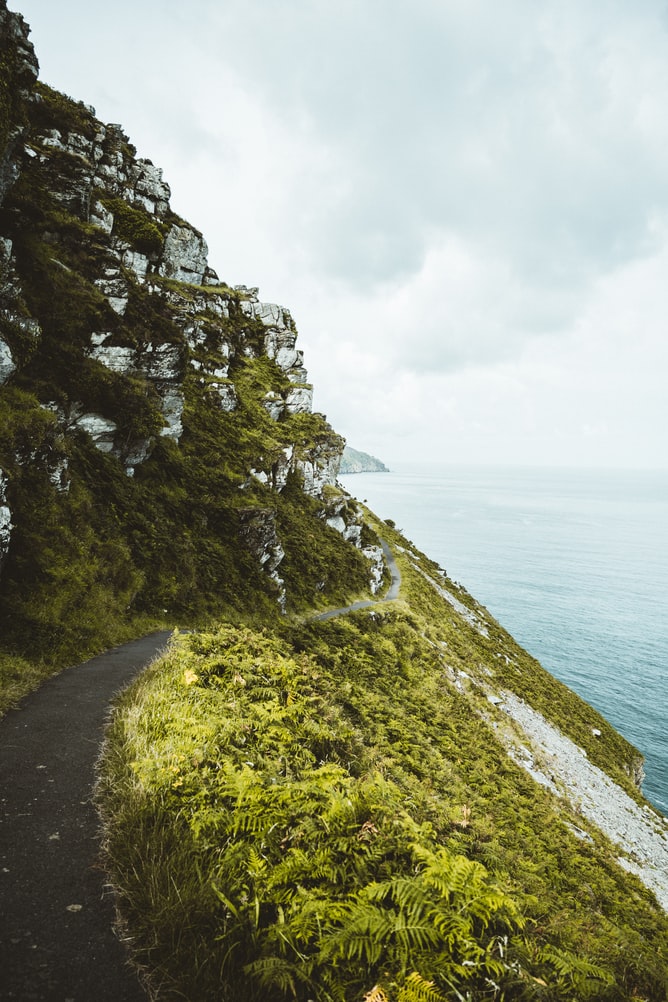Lena Ferriday introduces her PhD research on landscape and embodied experience in the south west of England. Her research is funded through the AHRC South West and Wales Doctoral Training Partnership.
Despite its material and ecological origins, environmental history has been profoundly influenced by the cultural turn, with scholars emphasising the importance of considering the cultural contexts in which natural spaces are embedded. My PhD project seeks to blend the cultural and material approaches with a focus on the human body and its corporeal sensations. Over the next four years, I intend to explore the implications of embodied experience on the cultural demarcations of certain landscapes, and thus demonstrate the value of this material-cultural approach for examining the historical development of human-landscape relationships.
Using the urban and rural landscapes of South-West England as a case study, my project will interrogate the embodied experiences of tourists across the long nineteenth century. Extending from a central research question which asks how visitors corporeally experienced the South West in this period, I will then consider the implications of these experiences on wider national conceptions for how landscapes should and should not be engaged with in this period. Scholarship of outdoor leisure movements has often positioned the expansion of ramblers’ clubs in the 1920s as a milestone for the fostering of a new corporeal relationship with British landscapes, the point at which experience diverged from those of Victorian elite gazing upon landscapes from a distance.

I will begin by analysing guidebooks to the South West, in order to consider the expectations and norms regarding tourists’ physical navigation through these landscapes in this period. These sources will then be combined with accounts of tourists, which will elucidate where these expectations were observed and contravened, allowing for greater comprehension of the extent to which Victorian tourists regarded landscapes to be visceral, multi-sensory spaces of engagement.
Focusing on the environments within which sensory stimuli are produced, this project proposes a new methodological framework for sensory history. Mark Smith has set an influential agenda for sensory history which asserts the importance of considering the consumption of senses, as opposed to their production. By focusing on the physical components of sounds and smells, he argues, much sensory history has attempted to discursively ‘reproduce’ the sensory stimuli of an historical moment, rather than consider their consumption as historically and culturally contingent. Therefore, it is sensory consumption that scholars should examine, in order to situate sensual experience in its historical and cultural context.
By combining sensory and environmental history, this project, however, emphasises the importance of both the production and consumption of sensory stimuli. Sensual experiences are fundamentally entangled with the environmental contexts which produce them. Drawing together the landscapes from which sounds, smells and embodied experiences manifest, and their cultural reception by the tourists that moved through them, will allow for a more comprehensive understanding of the dynamics of landscape engagement in this period. In so doing, I will advocate for the importance of assimilating sensory and environmental histories.
Across the project, I endeavour to engage with practice-based methodologies that are slightly unconventional for scholarship within the humanities. Inspired by the recent autoethnographic phenomenological studies of Tim Ingold and John Wylie exploring the corporeal experiences of rural walking, the resources of the DTP will support a number of trips to conduct walking as a research method. Spending time in the South West tracing the routes taken in the life-writings I am studying, will allow me to engage more deeply with the embodied experiences that these landscapes provide.
I hope that gaining experience with and finding value in such practice-based methodologies will allow for these trips to evolve into a public engagement program in my final year. Here, I intend to produce a series of curated walks across the South West, to engage the local public in the area’s mobile and sensual histories. With the success of writers such as Robert Macfarlane and Simon Armitage, I hope that drawing on the popular appeal of reflective walking will provide a valuable and unique opportunity to engage the wider community in my research.

